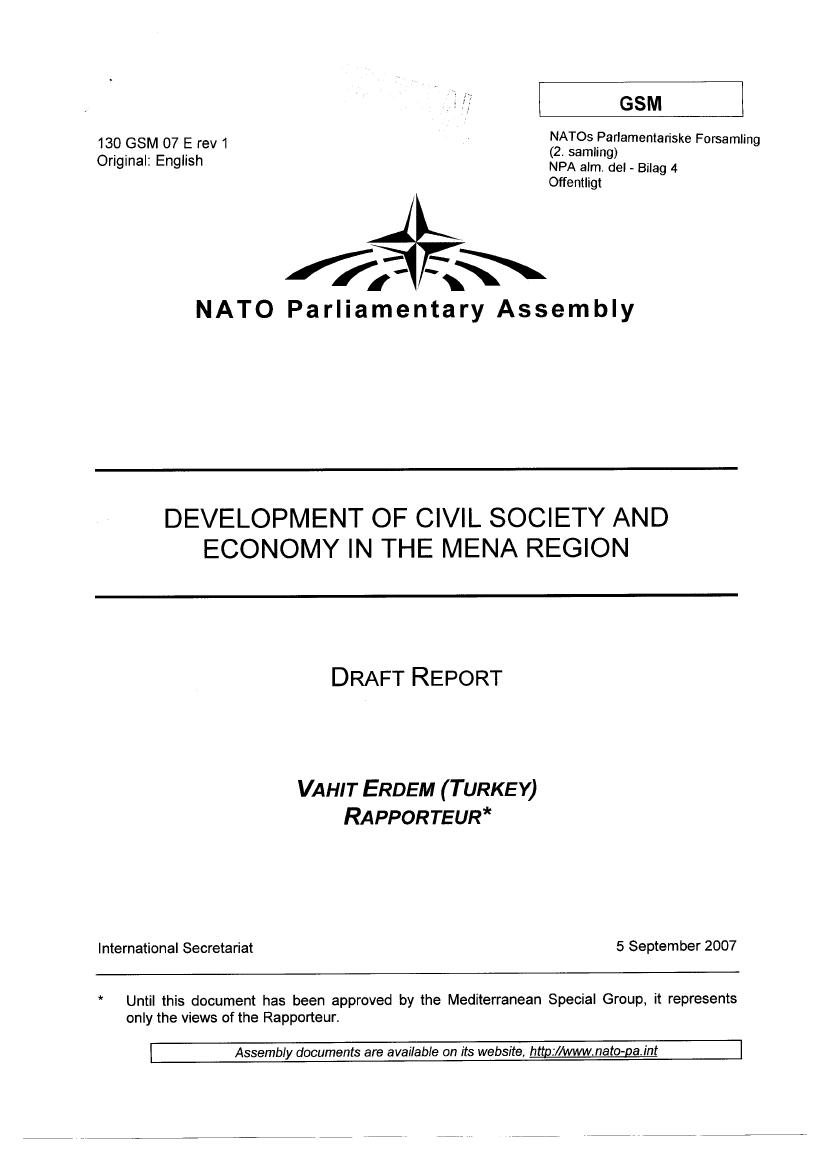
GSM
130 GSM 07 E rev 1
Original: English
NATOs Parlamentariske Forsamling
(2. samling)
NPA alm. del - Bilag 4
Offentligt
NATO Parliamentary Assembly
DEVELOPMENT OF CIVIL SOCIETY AND
ECONOMY IN THE MENA REGION
DRAFT REPORT
VAHIT ERDEM (TURKEY)
RAPPORTEUR*
International Secretariat
5 September 2007
*
Until this document has been approved by the Mediterranean Special Group, it represents
only the views of the Rapporteur.
Assembly documents are available on its website, http://www.nato-paint